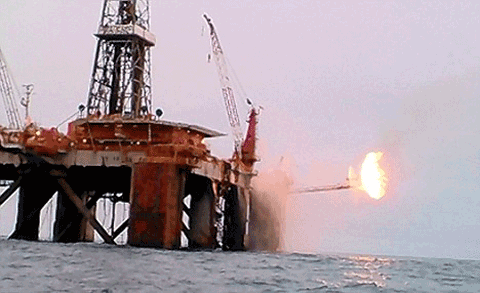Key words :
future energies,
natural gas
,energy crisis
,russia
,electricity usage
,scotland
,united kingdom
,coal
Britain's Impending Energy Crisis
10 Aug, 2009 10:46 am
By 2015, Britain's generating capacity could have dropped by a third as ageing coal and nuclear power stations are closed. Britain is also moving from being self-sufficient in oil and gas as North Sea production declines.
 |
"North Sea gas has served Britain well, but supply peaked in 1999. Since then the flow has fallen by half; by 2015 it will have dropped by two-thirds. By 2015 four of Britain’s ten nuclear stations will have shut and no new ones could be ready for years after that. As for coal, it is fiendishly dirty: Britain will be breaking just about every green promise it has ever made if it is using anything like as much as it does today. Renewable energy sources will help, but even if the wind and waves can be harnessed (and Britain has plenty of both), these on-off forces cannot easily replace more predictable gas, nuclear and coal power."
I thought about these issues a lot when I lived in Scotland. Britain is clearly facing a crisis, and how they address it will be instructive to those of us who are concerned about energy shortages. I always said that Britain will ultimately conclude that they have to have a lot of new nuclear power, but it looks like that recognition won't come in time to help them. So what's the answer? They start ramping coal back up - breaking those green promises - or they start to suffer power outages. What do you think they will do? As I have said before, when the power starts to go out, environmental concerns will fly out the window. Sure, people like the idea of not burning coal. But will they give up power 6 hours a day to achieve that? I don't think too many of them will.
Of course there is still natural gas from Russia, and I think they are going to have to roll the dice in the short term and hope Russia doesn't hold them hostage. Longer term, LNG terminals would seem to make sense to me, but they don't seem to be a part of the discussion here.
Ultimately, I think Britain will behave as the rest of the world will behave when faced with energy crunches. They will find that renewables can't step up and fill the gap, and so they will roll out conservation measures and make do with whatever it takes to avoid crippling power outages: No matter if it takes coal, natural gas, or the blubber from baby seals. This is how I expect the world to respond when renewable dreams meet the reality of power shortages.
For more background on Britain's situation, see also The looming electricity crunch.
Originally published on R-Squared Energy Blog
Key words :
future energies,
natural gas
,energy crisis
,russia
,electricity usage
,scotland
,united kingdom
,coal
-
12/12/12
“Peak Oil” is Nonsense… Because There’s Enough Gas to Last 250 Years.
-
05/09/12
Threat of Population Surge to "10 Billion" Espoused in London Theatre.
-
05/09/12
Current Commentary: Energy from Nuclear Fusion – Realities, Prospects and Fantasies?
-
04/05/12
The Oil Industry's Deceitful Promise of American Energy Independence
-
10:00
Shaky Foundations for Offshore Wind Farms







Businesses will be harder hit: those not already taking advantage of the Carbon Trust interest free loans will be forced to take drastic action to become more energy efficient, whilst those already ahead of the game will also be looking into on-site power generation. The difficultly there is continual NIMBYism - small turbines in gardens and rooftops from which people believe they directly benefit are one thing: giant power generators clogging up the skyline for someone else's benefit (even if the excess power goes into the grid) is another mater entirely.
The media has a massive role to play in the future of energy in this country. If it continues to back NIMBYism, then coal and nuclear will be seen as the way forward since they can be built in less locations, impacting on less peoples visible environment (but more on their invisible surroundings!) If the media helps people to make the connection between wind farms and the power flowing into their own homes, rather than just floating around the grid somewhere else, then the game would change significantly.